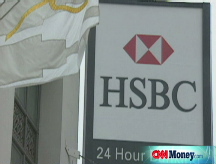Half of 'rescued' borrowers still default
Many modified mortgages in 2008 defaulted in 6 months, a top federal regulator says. A new study raises concerns over the quality of such loan adjustments.

WASHINGTON, D.C. -- More than half of delinquent homeowners whose mortgages were modified earlier this year ended up redefaulting within six months, a top bank regulator said Monday.
Some 53% of borrowers with loans modified in the first three months of 2008 and 51% of those with loans modified in the second quarter could not keep up with payments within six months, according to U.S. Comptroller John Dugan, who spoke at a housing conference.
The report, which will be released in full next week, covers nearly 35 million loans worth a total of $6 trillion - or 60% of all primary mortgages in the United States.
The high redefault rate raises concerns about the long-term effectiveness of loan modifications, which many are pushing as a key solution to the nation's financial crisis.
A record 1.35 million homes are in foreclosure, while the number of borrowers who have fallen behind on their payments soared to a record 6.99%, the Mortgage Bankers Association said last week.
Meanwhile, 1.7 million homeowners have been helped in 2008 through the Hope Now Alliance, a coalition of lenders, servicers, investors and counselors working with delinquent borrowers on modifications and repayment plans.
Dugan said the Office of the Comptroller of the Currency is asking servicers for more details on the loans in his report to determine what went wrong. He wants to know whether the modifications reduced the monthly payments to affordable levels or whether the borrowers had too much other debt to keep their head above water.
"These answers are important, because they have important ramifications for the foreclosure crisis and how policymakers should address loan modifications, as they surely will in the coming weeks and months," Dugan said.
Other regulators speaking at the conference questioned the quality of the loan modifications, saying that early efforts to restructure loans were not very effective. Many simply tacked on the missed payments and penalties to the end of the loan.
"The quality of the modifications are not what they should be," said FDIC Chairwoman Sheila Bair, a vocal proponent of adjusting loans by reducing interest rates, extending loan terms and deferring principal. Also, verifying income is very important.
Modifications that include an interest rate reduction have a 15% redefault rate, said Bair, citing a recent Credit Suisse study.
Last month, Bair unveiled a plan to address the foreclosure crisis by modifying loans to as low as 31% of a borrower's gross monthly income. This could be done by setting interest rates to as low as 3% or extending loan terms to 40 years. Principal could also be deferred free of interest to the end of the loan.
To entice servicers and investors to participate, Bair's plan calls for the government would share up to 50% of losses should the loan redefault. But that guarantee only kicks in after the borrower has made six monthly payments to better ensure the mortgage modification is sustainable long-term. It would cost $24.4 billion, which Bair has said could come from the rescue funds.
Bair's efforts have been widely praised, but the Bush administration has yet to act on it.
As the housing crisis continues to spin out of control, lawmakers, economists and community activists are increasingly demanding that financial institutions and the Bush administration do more to help homeowners by modifying loans to affordable monthly payments.
In recent months, banks and federal agencies such as the Federal Deposit Insurance Corp. and Fannie Mae (FNM, Fortune 500) and Freddie Mac (FRE, Fortune 500) have stepped up efforts to adjust loans so that payments are no more than 38% of a borrower's monthly income.
Rep. Barney Frank, D-Mass, who heads the powerful House Financial Services Committee, said Monday that Congress will not give the Bush administration the $350 billion left in the $700 billion financial system bailout package unless loan modifications are part of the plan.
However, other regulators said that federal money may be better spent on economic stimulus and job creation since a growing number of foreclosures are caused by unemployment. In those cases, loan modifications won't help.
The unemployment rate soared to 6.7% and is expected to go higher with companies announcing massive downsizings almost daily.
"I have to wonder whether or not focusing on job creation..is a better way to focus federal dollars than on a loan modification process that may be only partially effective," said John Reich, director of the Office of Thrift Supervision. ![]()



